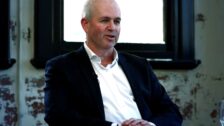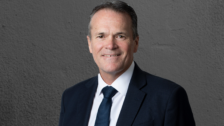Why fixed income is back (and better than ever)
With rates pinned to zero and markets backstopped by quantitative easing, fixed income has been locked in a lost decade where duration became a dirty word in the adviser community.
But changes to the post-Covid macroeconomic backdrop mean that’s no longer the case.
“I think today we’re moving into a new era in fixed income markets,” Haran Karunakaran, fixed income director at Capital Group, told The Inside Network’s Investment Leaders Symposium.
“We’re going back to something like the old world, where yields were in the 5, 6 or 7 per cent range; a period of higher-for-longer rates, a period of increased uncertainty in the world and a period where central banks won’t be the get out of jail free card for markets that we’ve had in the last decade.”
The Fed Put ameliorated the need to be defensive in portfolio construction, but a new era of fixed income has arrived with yields – the measure of an instrument’s income, and an input for its price – above historical levels, analogous to investing in equities at a price of 15 times rather than 25 times. And because it’s highly likely that we’ve reached peak rates, traditional fixed income with duration exposure should see an uptick in returns.
“On average, over the last 50 years, investment grade corporate bonds – high quality corporate bonds – returned a cumulative 32 per cent,” Karunakaran said. “That’s 10 per cent per annum. For a high quality, low chance of capital loss, diversifying asset class. That’s almost unheard of in financial history. In my career I’ve never seen anything like this.”
But while fixed income might be back, it’s competing with the upswing in interest in private debt – the hot ‘new’ asset class that promises equity-like returns with a minimum of the risk. Apostle’s Tony Breen, however, says the promises made about Australian private debt bring back bad memories of the GFC.
“We’ve got guys knocking at our door offering us rates of return like you’ve never seen in your life before,” Breen said. “How much regulation does a private debt manager have? Absolutely nothing. Where’s the transparency? If you’ve got an Australian private debt portfolio, do you really know what’s in it? There’s no balance sheet risk because this is all agency business… it’s all driven by fees and backed up by a buoyant property market.”
It’s a “tower of cards”, Breen said, and credit decay could topple it at any time.
“The question I’m asking is are we running a big operational risk by having our private credit managed the way it is? And the answer is probably yes.”
But to get access to similar returns, sub-investment grade has some “very good characteristics”, he continued. The name makes it sound worse than it is – it’s a term applied by the rating agencies to indicate the probability of a debt being paid on time and on budget, not a measure of whether it will be paid, and in full – and doesn’t tell investors what will happen if they manage it correctly (preferably abroad, where there’s more diversity, and with as much transparency and liquidity as you can get), which can mean significant returns above Treasuries and a manageable default rate.
“There are good returns to be had from sub-investment grade; it’s a rocky ride, but you have got to take a very, very hands on approach and make sure that you manage your defaults.”











